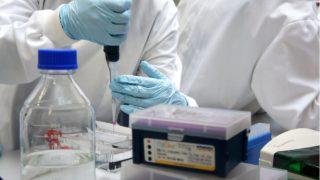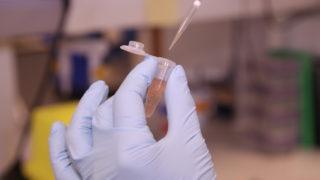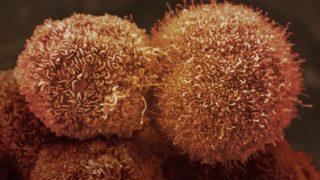Latest News
Search News
Categories
Archives
New class of drug reduces risk of death in bladder cancer
15th February 2021
A new type of drug that helps target chemotherapy directly to cancer cells has been found to significantly increase survival of patients with the most common form of bladder cancer, according to results from a phase III clinical trial led in the UK by Professor Tom Powles from Barts Cancer Institute, Queen Mary University of London and Barts Health NHS Trust.
Read moreSNPnexus in the fight against COVID-19
8th February 2021
Researchers from Barts Cancer Institute, Queen Mary University of London, have released a web-based tool called SNPnexus COVID to streamline the analysis of host genetic sequencing data and allow for the identification and prioritisation of genetic variants that may impact an individual’s susceptibility to and the severity of COVID-19 infection.
Read moreResearch highlighted in ASCO annual report on progress against cancer
2nd February 2021
Research led by Professors Peter Schmid and Thomas Powles from Barts Cancer Institute, Queen Mary University of London, has been selected by the American Society of Clinical Oncology (ASCO) for inclusion in the Clinical Cancer Advances 2021, the Society’s annual review of progress against cancer. The notable studies, which investigated the use of immunotherapy in the treatment of triple negative breast cancer and advanced bladder cancer, are featured as two of many remarkable milestones in clinical cancer research and care.
Read moreResearchers develop virus-based treatment platform to fight pancreatic cancer
27th January 2021
Researchers from Barts Cancer Institute, Queen Mary University of London, and Zhengzhou University have developed a powerful therapeutic platform that uses a modified virus for the treatment of pancreatic cancer. By using the virus in combination with other drugs, the treatment significantly extended survival in preclinical models of pancreatic cancer.
Read moreCAR T cell therapy for pancreatic cancer
22nd January 2021
Researchers from Barts Cancer Institute, Queen Mary University of London, have identified a protein that may represent a novel therapeutic target for the treatment of pancreatic cancer. Using this protein as a target, the team successfully created a CAR T cell therapy – a type of immunotherapy – that killed pancreatic cancer cells in a pre-clinical model.
Read moreStudy receives prize for Research Excellence in Pathology
14th January 2021
Congratulations to Barts Cancer Institute’s Professor Hemant Kocher, who is co-lead author of the paper selected by The Journal of Pathology for the Jeremy Jass Prize for the calendar year 2019.
Read more





